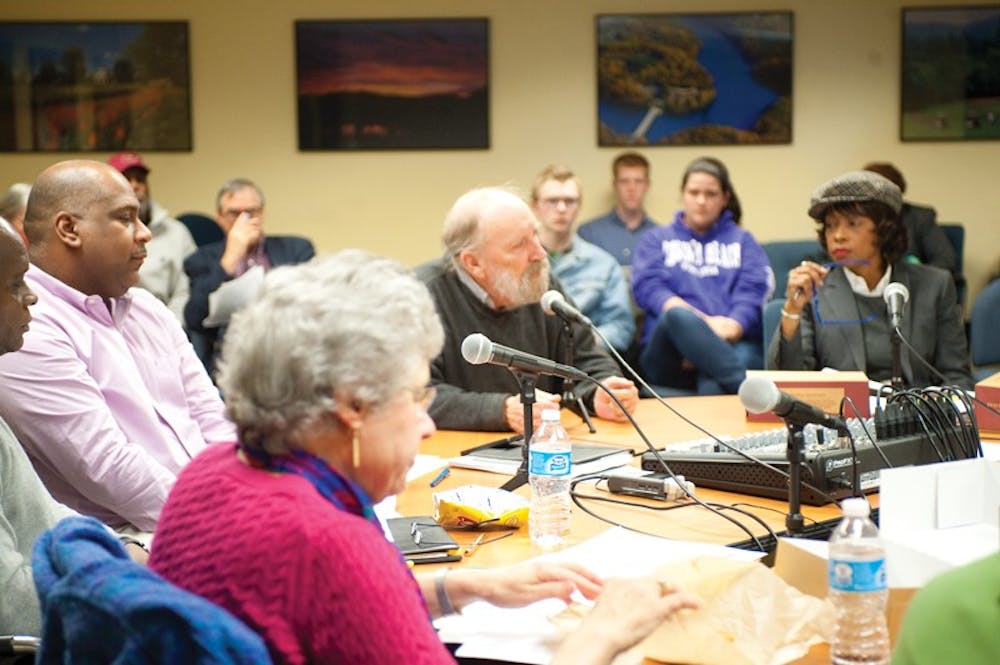Charlottesville’s Human Rights Task Force Wednesday evening voted 6-4 to pass its final proposal to Charlottesville’s City Council for a human rights commission with enforcement powers — or, as human rights commission advocate and Education Prof. Walt Heinecke put it in an email, “a commission with teeth.” Of the 10 task force members, seven were present at last night’s meeting. All members present voted for a commission with some enforcement powers, but the degree of those powers is still a matter of debate.
In February 2012, after a year’s worth of research, Charlottesville’s Dialogue on Race Policy Action Team proposed the creation of a human rights commission to Charlottesville City Council. This commission would “enforce anti-discrimination ordinances” and “would follow the Virginia Human Rights Act,” Heinecke said. The act allows for local bodies to hear, investigate and resolve complaints of discrimination in employment, housing, real estate, private education and credit.
The Council created a Human Rights Task Force to spend 10 months reviewing the proposal.
The Charlottesville Human Rights Commission then formed as an advocacy group dedicated to the establishment of a commission composed of citizens appointed by the City Council that could enforce local anti-discriminatinon laws, according to the group’s website.
Not all task force members support such an objective.
Task Force member Abigail Turner said the task force had a wide range of opinions on multiple aspects of commission structure, including how many tasks the commission would perform and the level of enforcement power it would have.
“I am troubled with anything in writing that says we have a clear vote [on anything], because we do not,” Turner said.
When the task force voted in November on “possible characteristics of a human rights commission,” the vote was split 5-5 as to whether the commission should be able to wield punitive powers, Heinecke said.
“Some are still trying to argue against a Human Rights Commission with enforcement powers,” Heinecke said. “Opponents are proposing replacing a citizens’ Human Rights Commission with a Human Rights Advocate in City Hall.”
Another proposal was to install a field office of the Federal Equal Employment Opportunity Commission in Charlottesville. The EEOC allows workers to file suits contesting discrimination against a job applicant or employee based on race, gender, age or any other characteristic irrelevant to the workers’ competence.
Heinecke said he viewed an EEOC field office as an unlikely and inefficient possibility.
“The EEOC is underfunded and I don’t think there is likelihood they will come to town,” Heinecke said. “The EEOC process takes a lot longer to come resolution than a local human rights commission would.”
Moreover, the task force’s proposed commission would address not just employment discrimination but also discrimination in other areas such as housing, Heinecke said.
Some City Council members endorsed an active commission but still saw flaws in the proposal.
“I do support an anti-discrimination commission or council but my problem with the models being discussed right now is that they don’t go nearly far enough,” City Councilor Dave Norris said in an email.
Norris said a new commission should focus specifically on racial discrimination within the community. He said the commission’s job would not be to create new anti-discrimination laws but to enforce them.
“We already have mechanisms in place … of state and federal anti-discrimination laws,” Norris said. “This new body should … work to make those mechanisms more visible and accessible.
The task force plans to rewrite its proposal by Dec. 10 and present a final recommendation to City Council Dec. 17. Council will ultimately decide whether to accept or reject the recommendation to form a human rights commission.
“A human rights commission is the best way to ensure justice and fairness for people in Charlottesville,” Heinecke said.





